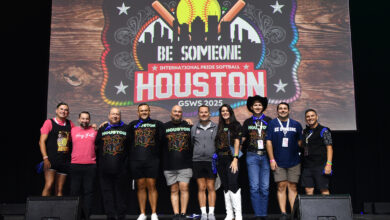
Kellett Foundation to Shutter After 26 Years of Funding Houston LGBTQ Groups
Applications sought for final round of grants as large as $100K.
After 26 years of providing grants to LGBTQ organizations, Houston’s John Steven Kellett Foundation is closing.
Since 1992, the foundation has doled out more than $250,000 in the form of 203 grants. The foundation’s remaining funds will be awarded for “transformative” projects up to $100,000, or 10 percent of an organization’s budget, according to president Brian Riedel.
The Kellett Foundation was established by John Kellett, a retired Exxon executive who in 1986 began making personal gifts to organizations that did not receive funding from traditional sources. By 1992, Kellett had set up the foundation and established a six-member board to oversee it.
He died at age 90 in January.
Riedel said that in the years prior to his death, Kellett considered several scenarios for what should happen to the foundation. After his death, the board determined that there were not enough funds to operate in perpetuity. They chose to give one final round of grants that would help organizations achieve a significant transformation.
Riedel said the window for proposals for these final grants will be from November 1, 2018, through February 28, 2019.
Riedel describes transformative proposals as “what is currently needed that isn’t being done—that if we rearranged what we were doing, we could get to.” The board is purposely leaving the definition vague. “We want the community organizations to tell us what they need and why they need it,” Riedel explained.
Grants may be paid in one lump sum, or in annual installments over the next three years. Riedel says the board encourages organizations to “think big.”
Historically, Kellett Foundation grants have been much smaller, from a few hundred dollars to $5,000.
Riedel said Kellett’s consistent response to the board’s questions about the disposition of the foundation was always, “I trust you all to do what you think is best.” Because Kellett did not want to burden the foundation with a list of restrictions, the sunsetting of the foundation will be a smooth effort.
The foundation’s previous grants have helped many organizations that would otherwise have floundered. One example is Houston’s Gay Film Festival, which has received over $24,000 in grants and matured into the impressive annual QFest.
In addition to local grants, the foundation funded some statewide and national organizations that did work in Houston—such as Equality Texas and the National LGBTQ Task Force.
Riedel remembers Kellett as a low-profile person who sought to help the community grow, but wanted no fanfare for himself. “John allowed the foundation name to be used only as an encouragement for others to think about funding community efforts.”
The only known interview Kellett gave was to OutSmart in 2005, and he used the article to describe a funding model that others could use. “The important thing was to show people their own community but not have it taste like medicine—to give people a lesson without it feeling like school, and to help people find each other and have it be fun,” Riedel said of Kellett’s philosophy.
After Kellett’s death, Riedel said the board met in March to determine the future of the foundation, and by September a plan had been developed. The board then contacted each organization that has received a Kellett grant to inform them about the final round of transformative gifts.
Once the grant window has closed, the board will evaluate all the proposals received and choose those that they find most compelling. Riedel said he does not expect a grant award announcement any sooner than May 2019. Because some of the grants may include a three-year payout, the foundation could continue to exist through 2021 before its final dissolution.
The foundation’s website lists 45 of the organizations that the foundation has provided funding for over the years. The list includes such groups as Bayou City Performing Arts, Gay and Lesbian Switchboard of Houston, Houston Gay and Lesbian Parents, Stonewall Lawyers, and Uncommon Legacy.
Another grant recipient was The Banner Project, which created a “pop-up museum” of Houston LGBTQ history. “Receiving a grant for the Banner Project from the Kellett Foundation was the decisive event making the banners possible,” said Sara Fernandez, who coordinated the effort. “In January 2014, the deadline for completion was fast approaching and we had less than half of the money needed. Without the Kellett Foundation, the banners may not have happened.”
Activist Tori Williams is involved in two organizations that were funded by the foundation.
“The John Steven Kellett Foundation was the first organization to provide financial support to The oH Project,” Williams said. “Without these important startup funds, our oral history project documenting Houston’s response to the AIDS epidemic would not have been born.
“In 1996, when AssistHers was trying to educate local physicians about the healthcare needs of Houston-area lesbians, the foundation underwrote the cost of printing and distributing information to several hundred physicians,” Williams added. “A number of physicians told us that they changed their patient intake forms to be more sensitive to lesbians in response to the effort. These are just two of many seeds that John planted which made, and will continue to make, Houston a better place for all of us.”
To apply for a transformative grant, visit KellettFoundation.org.
This article appears in the November 2018 edition of OutSmart magazine.










